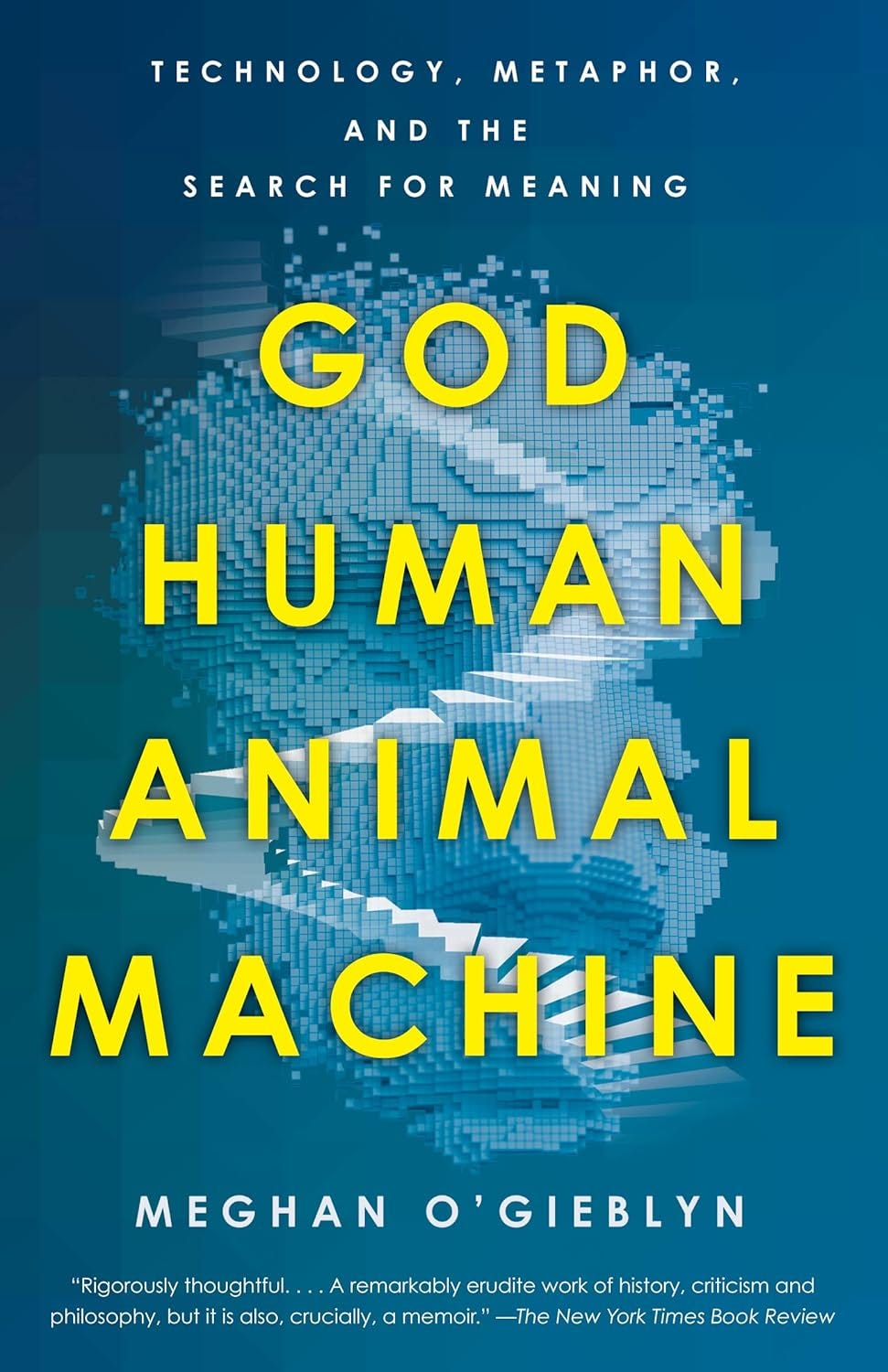Is Learning Fun?
Yes, but not all fun is created equal. The four types of fun can help us approach learning in the age of AI.
Thank you for being here. As always, these essays are free and publicly available without a paywall. If you can, please consider supporting my writing by becoming a patron via a paid subscription.

Fun does not require instant gratification. In our everywhere, always, right now culture this seems blasphemous. We want it, and we want it now, from the latest information on our devices to the Amazon packages on our doorsteps.
As we think about how to engage AI, we've got to be conscious of this obsession with speed and efficiency. It’s not surprising that AI’s ability to make you more “productive” is one of its key value propositions. It’s downstream of the social and economic incentives that make productivity an end instead of just a means to one. There are certainly areas where productivity is valuable. But unfortunately, we all too often assume that it’s worth doing anything faster, without asking why we’re doing it and whether it’s worth doing in the first place.
This bias toward cranking out more in less time is particularly problematic in educational spaces. Learning, it turns out, rarely feels productive, instantaneous, or easy. Instead, authentic and meaningful learning often feels like a struggle, frequently filled with wrong turns, dead ends, and obstacles.
But this doesn’t mean learning isn’t fun. It’s just not Type I fun.
The Four Types of Fun
Today I want to tell you about a framework that has stuck with me ever since I first learned about it about 15 years ago as a teenager. I was first introduced to the four types of fun on a two-week canoe trip down the Allagash River in Maine, journeying with nine other guys from Deerfoot Lodge as part of the Voyageur program. On this trip, one of the counselors happened to be an MIT math undergrad. In addition to teaching me how to solve a Rubik’s cube, I have this guy to thank for teaching me about fun.
I can't remember if it was on the drive up to Maine from Upstate New York or on one of our days canoeing on the river, but somewhere along the line, this counselor blew my mind. Fun, he told me, was more complex than you might think. It turns out, there's more than one kind. In fact, there are at least four.
The four types of fun help to capture the different facets of enjoyable experiences. Type I fun is the kind that most readily comes to mind when describing something as fun. Type I fun activities are enjoyable when you're doing them; things like playing games or sports, reading a book, watching a movie, or hanging out with friends.
Type II fun activities on the other hand aren't enjoyable while you're doing them, but they are satisfying afterward. Consider exercising or hiking. After you've hiked long enough, the experience can hardly be called fun under the Type I definition. You're sweaty, can feel the blisters forming on your feet, and are ready to hop in the shower, lay down, and take a nap. And yet, when you finish the activity, you would describe it as fun. Type II fun is delayed gratification.
Type III fun describes those experiences that are not fun while you're doing them, not fun in retrospect after the fact, but are fun to tell stories about. These are the truly horrible camping trips where it rained the whole time and you were soaked to the bone. Or the trips where you got stuck in the airport overnight and had to sleep on the floor of the terminal, only to find out that the rescheduled flight the next day was canceled too. No part of these experiences is enjoyable, even after you get to wherever you’re going and recover. But, there is a real feeling of enjoyment that you get telling the story about the experience, even though the experience itself was miserable.
So what? Why do the types of fun matter?
They matter because they are a lens that helps us see beyond the deception of instant gratification.
Is Learning Fun?
As we consider education in the age of AI, understanding types of fun gives us an explicit framework to help us set our expectations appropriately. The work we are doing in the classroom is rarely Type I fun. This is not to say that it is all a grind that pays off only after the fact, but the truth is that learning requires effort and stretching and the stretching is uncomfortable. Just like physical training, you don’t get stronger unless you push yourself beyond your current limits. Muscles grow by tearing and repairing themselves in response to stress.
The same ideas apply to our work in the classroom. We don’t build knowledge or develop new skills without pushing ourselves beyond our current limits. We can grow more familiar with the process, but the discomfort of extending beyond your current expertise will always bring with it a sense of risk and potential failure.
Learning is typically Type II fun. If we go into it thinking that it will be enjoyable in the moment, we’re setting ourselves up for disappointment. The good news is, most of the time it's not Type III fun. Even if the timescale from effort to reward isn't as short as we'd like, it does often pay off as we look back at our efforts.
As educators, we need to help our students develop realistic expectations about the work they are engaging in and how the process will feel. They may intuitively understand that learning is hard, but we should make this explicit.
This fall, I'm encouraging my students to reflect in blog posts each week. I'm enjoying seeing their thought process and getting a better understanding of how they're feeling about the class. The blogging experiment is built on a Type II fun assumption. I'm betting that these reflections will be even more valuable in retrospect. When my students look back on their reflections throughout the semester, they'll remember the struggle and failure but see the way that the challenges were a critical part of their process of growth in the class.
As we continue to encounter a flood of new technological tools offering to make our learning more "efficient" we had best be asking what exactly that means. As I've said before: if this technology helps us to more effectively engage with the frictionful state of authentic learning, then I'm all for it. But I am suspicious that this will rarely be the case.
Instead, perhaps some rather boring, old-school strategies might be even more helpful. Strategies like asking simple questions.
Why am I doing this in the first place?
How can I better focus my attention on the parts of this work that truly matter?
What will be important about this assignment two weeks from now? What about two years from now?
What sort of enjoyment should I expect from this experience and when?
Like many things in life, setting expectations properly is a big deal. If we’re expecting that learning is going to be as much fun as playing video games or watching a movie, we’re in for a tough time. If, however, we understand that learning is fun, just not in the same way as these other activities that are enjoyable in the moment, this knowledge helps to reshape our perspective and cultivate new motivational structures to help us engage with work that may not have an immediate payoff.
The Fourth Type of Fun
The observant among you will notice that I said there were four types of fun, but until now, I’ve only told you about three. Type IV is the most abstract. It describes activities that are not fun while you're doing them, not fun after you're done, not fun to tell stories about, but are fun for others to tell stories about. Think of these experiences as gifts to your friends and family and a reminder that we ought not to take ourselves too seriously. To make it more concrete, let me share the story that was shared with me when introducing me to Type IV fun.
A young man had just purchased a beautiful new road bike and decided to take it out for a spin on the street of his hometown of Boston, MA. It was a sweltering August day, of the kind that you truly only understand if you've lived through a New England summer. 90+ ˚F and so humid that it feels like you're in a swamp.
Well, given the heat, this poor fellow decided that he needed to bike shirtless to stay cool. All was going well, until he pulled up to a red light, coming to a gentle stop in traffic right next to a car. There was only one problem. You see, this new fancy road bike had a new kind of pedal. A kind of pedal that our poor friend was not used to but was about to become all too familiar with. The poorly-named, clipless pedals.
For the uninitiated, clipless pedals are a fabulous invention for maximizing your energy transfer to the bike, but require a slightly challenging (at least at first) maneuver to extricate oneself from. Alas, our friend had not yet mastered the dance. He came to a stop, tried to pull his feet off the pedals just as he had always done, and proceeded to tip to the side, sliding down the side of the car beside him, sweaty, shirtless torso and all. To add insult to injury, he then had to collect himself from the asphalt, untangle himself from his bike, and wait out the rest of the light.
From the perspective of our road-biking friend, this story was not an enjoyable one. Not while he was experiencing it, not after he made his way home, and not in the retelling of the story to his friends. But, once his friends got wind of it, boy, what a story to tell.
As we approach learning in the age of AI, we must be clear. Learning is fun, just not in the way you might think. Helping our students understand that Type I fun is not the be-all and end-all is the first step in helping them embark on their own journey of productive struggle. As we go, hopefully we'll avoid creating too many Type IV fun opportunities for our friends.
Got a comment? I’d love to hear it. Join the conversation.
Reading Recommendations
Lots of interesting stuff to dig into this week. Here are just a few.
First up,
is back on the ed-tech beat, she announced last week, and is working on a new book project. If you’re not familiar with her work, I highly recommend you check it out over at her newsletter 2nd Breakfast. Audrey is the author of Teaching Machines and someone I find who always has something interesting and thoughtful to say in this space. I’m looking forward to seeing what she has to say in the weeks to come.Moving over to the other side of your scorecard, we’ve got a few new recent essays/blogs from those building AI inside big tech. The first is from Mustafa Suleyman, CEO of Microsoft AI. In “An AI companion for everyone" (alarm bells going off in my head immediately) Suleyman argues:
With your permission, Copilot will ultimately be able to act on your behalf, smoothing life’s complexities and giving you more time to focus on what matters to you. It’ll be an advocate for you in many of life’s most important moments. It’ll accompany you to that doctor’s appointment, take notes and follow up at the right time. It’ll share the load of planning and preparing for your child’s birthday party. And it’ll be there at the end of the day to help you think through a tricky life decision.
What if “smoothing life’s complexities” ends up ironing out the wrinkles that make it meaningful along the way?
The second piece is from Dario Amodei, CEO and co-founder of Anthropic, the maker of the LLM tool Claude. I haven’t yet had the chance to sit down and read through his essay “Machines of Loving Grace” but from the title alone I’ve got some serious questions. The title is a reference to the 1967 poem by Richard Brautigan who opines of a utopia
where we are free of our labors and joined back to nature, returned to our mammal brothers and sisters, and all watched over by machines of loving grace.
Interestingly, Brautigan penned these words just a few miles south of where I sit typing mine, at my PhD alma mater, Caltech, while Brautigan was poet-in-residence there. I suspect they don’t have a poet in residence anymore, but it would be a wonderful idea to bring that back.
I can’t help but think of Wendell Berry here: “It is easy for me to imagine that the next great division of the world will be between people who wish to live as creatures and people who wish to live as machines.” Me too, Mr. Berry, me too.
On a similar chord, Alan Jacobs laments AI Week at Baylor. Preach.
Whatever AI might be in some imagined utopian future, AI companies in our present moment extract and exploit — ecologically, ethically, and humanly. This is simply what they do, intrinsically, necessarily — in a perverse sense of the phrase, on principle. A Christian university ought to be saying so, or at the very least should be putting some challenging questions to our new AI overlords. We’re not going to achieve that utopian future without first confronting the largely dystopian present.
The Book Nook
I bought
’s book God, Human, Animal, Machine: Technology, Metaphor, and the Search for Meaning a few months ago but am just now finally getting around to digging in. I’m still only a few chapters in, but am appreciating the way that Meghan is wrestling with these questions in honest, personal, and raw ways—discussing how these questions are intertwined with her own past as well.The Professor Is In
Last week was the second of our three talks in this fall’s Nelson Lecture Series: Learning in the Age of AI. Our second guest was
. Having initially run across John and his work here on Substack, this was a fun treat to have him come out to campus in person to interact with our community. We had a great time and I think John did too. Hoping that we can get him back out sometime next year after his new book More Than Words: How to Think About Writing in the Age of AI comes out in February.Leisure Line





It’s Harvey Mudd’s fall break this week, so we made a trip down to Legoland on Monday as an early celebration of #1’s birthday. Doesn’t hold a candle to Disney, but the kiddos had a great time nonetheless which is the most important part.
Still Life
Once again in awe of the macro mode on my iPhone camera. This weekend it was this little guy. Sorry for no scale bar, but he would fit inside my pinky fingernail. The AI in photos on my iPhone says it’s a Phidippus adumbratus.






Two of my favorite writers in one picture! Wish I could have been there to see it.
Nice post, thanks! Seems like the bike story is also a type three fun, but all good! Having Fun trying to classify Fun~!